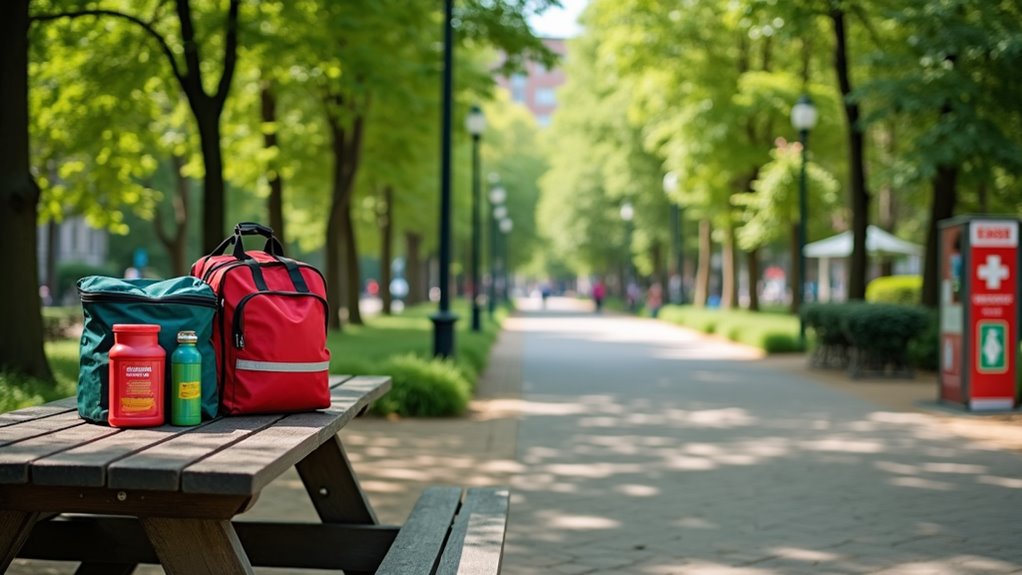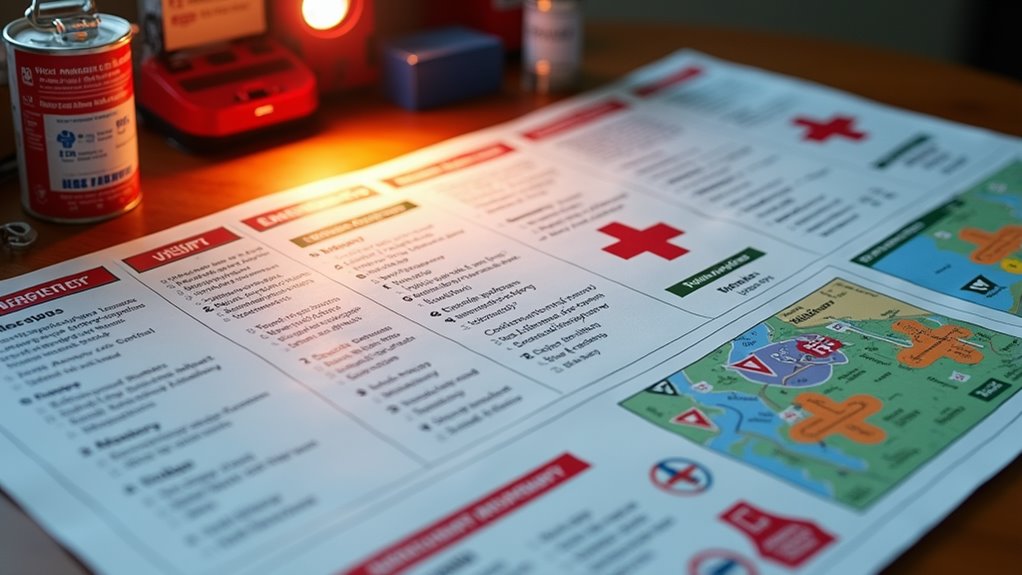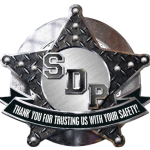To prepare for emergencies in public places, you need to stay alert and have a plan. First, familiarize yourself with emergency exits and signage around you, so you know your escape routes. Keep a list of emergency contacts handy, including family and friends, for quick communication during a crisis. Consider carrying a Mini Personal Alarm for added safety, as it can deter threats and alert others. Additionally, participate in community training programs to learn essential skills like first aid. Remember, being proactive can save lives, and there's more to discover about effective safety measures you can take!
Emergency Preparedness Advantages

When you think about emergency preparedness, consider how it can make your community stronger and more connected. Having a solid plan not only helps everyone respond better during a crisis, but it also means resources get used more effectively, so no one feels left behind. Furthermore, utilizing compact design options like the Mini Personal Alarm with LED flashlight offers a practical and convenient way to enhance personal safety. Additionally, investing in affordable safety options like personal security alarms ensures that individuals have access to immediate protection and attention in emergencies.
Increased Community Resilience
Although emergencies can disrupt lives, increased community resilience through preparedness can greatly mitigate their impact.
By getting involved in community engagement activities, you can help build a stronger network of support. When people know each other, they're more likely to lend a hand in tough times.
Participating in training programs is another fantastic way to boost resilience; these programs teach essential skills like first aid and emergency response. Not only will you gain useful knowledge, but you'll also inspire others to join in.
This teamwork fosters a sense of belonging and safety, making your community more prepared for anything that comes your way. Together, we can face challenges and emerge stronger, ensuring everyone feels a little safer.
Enhanced Response Coordination
Building a resilient community naturally leads to better response coordination during emergencies. When you have a well-prepared response team, you're not just ready to act; you're ready to communicate effectively. This means everyone knows their roles and can jump into action without confusion.
Regular response team training is essential. It helps everyone stay sharp, so when trouble strikes, they can react quickly and confidently. Plus, having solid communication protocols guarantees that information flows smoothly. Whether it's alerting others about danger or coordinating with first responders, clear communication can save lives.
Improved Resource Allocation Efficiency
Efficient resource allocation can greatly enhance your community's emergency preparedness.
When you manage resources well and optimize your budget, you guarantee that every dollar counts, providing the tools and support needed during a crisis. This not only saves money but also saves lives.
Consider these key benefits:
- Quick access to essential supplies during emergencies
- Better training for responders, making them more effective
- Stronger community trust, knowing you're prepared
Emergency Contact Information Availability
When an emergency strikes, having easy access to your emergency contact information can make all the difference. You never know when you might need to reach someone quickly, so creating a reliable contact list is essential. Make sure to include family members, close friends, and even neighbors who can help in a pinch. Keep this list handy on your phone, in your wallet, or even on a piece of paper in your backpack. The key is information accessibility—if you can't find it when you need it, it's not much help. Regularly update your contact list, too, so it's always current. Remember, being prepared can save time and possibly even lives during a crisis. Additionally, consider carrying a portable size personal alarm to draw attention during emergencies.
Emergency Response Planning Steps

Having your emergency contact information ready is just the first step in preparing for unexpected situations.
Next, you need to conduct a risk assessment to identify potential hazards around you. This means thinking about things like fire, medical emergencies, or natural disasters.
Once you know the risks, create an emergency response plan that outlines what to do in each situation.
Don't forget to involve others; teamwork can save lives! Consider engaging in training programs, like first aid or CPR, so you and your friends know how to react when it counts.
Remember, staying informed and prepared can make a huge difference in an emergency.
You've got this, and your safety is worth the effort!
Emergency Exits and Signage
Clear emergency exits and well-placed signage are essential components of any safety plan.
When you're in a public place, knowing your exit routes can make a huge difference during an emergency. So, take a moment to do an exit route analysis whenever you're somewhere new. Check where the exits are located and how easy they'll be to access.
Visibility of the signage is vital, too; it should stand out and be easy to read, even in low light. Look for clear arrows pointing the way and instructions that guide you quickly.
Don't wait for a crisis to familiarize yourself with these routes. By understanding your surroundings, you'll feel more prepared and safer, no matter where you are.
Stay alert!
Answers to Common Questions
What Should I Include in a Personal Emergency Kit?
When creating a personal emergency kit, include first aid supplies, water, non-perishable food, a flashlight, batteries, and essential supplies like a whistle, multi-tool, and personal documents. These items'll help you stay safe and prepared.
How Can I Stay Calm During an Emergency?
During an emergency, staying calm is essential. You can practice breathing techniques to regulate your heart rate, and use mental visualization to create a peaceful scene, helping you regain control and make clear decisions.
Are There Apps for Emergency Alerts and Information?
Yes, there are several safety applications that provide emergency notifications. You can download apps like FEMA, Red Cross, or local emergency services to receive real-time alerts and helpful information during critical situations. Stay informed and prepared!
How Do I Identify Safe Meeting Points After an Evacuation?
After an evacuation, you'll want to dart to safe locations like a superhero! Identify marked evacuation routes, then meet at pre-designated spots, ensuring everyone's accounted for. Safety's your ultimate mission—don't compromise on it!
What Should I Do if I See Someone Injured?
If you see someone injured, assess the situation first. If it's safe, provide first aid and call for emergency response. Stay calm, reassure the injured person, and keep them still until help arrives.
Bottom Line
So, whether you're at the mall or a concert, being prepared for emergencies is super important. Keep your emergency contacts handy, know the exits, and have a plan. It's like knowing where the bathroom is—crucial info when you really need it! Remember, staying calm and being aware can make all the difference, and you can help others too. So, gear up, stay alert, and take charge of your safety. You've got this!




